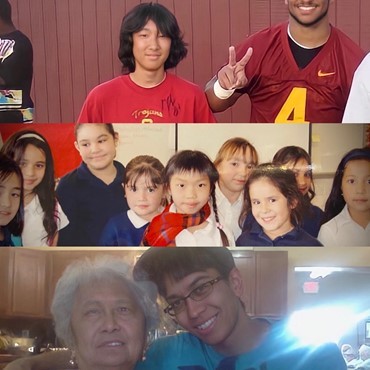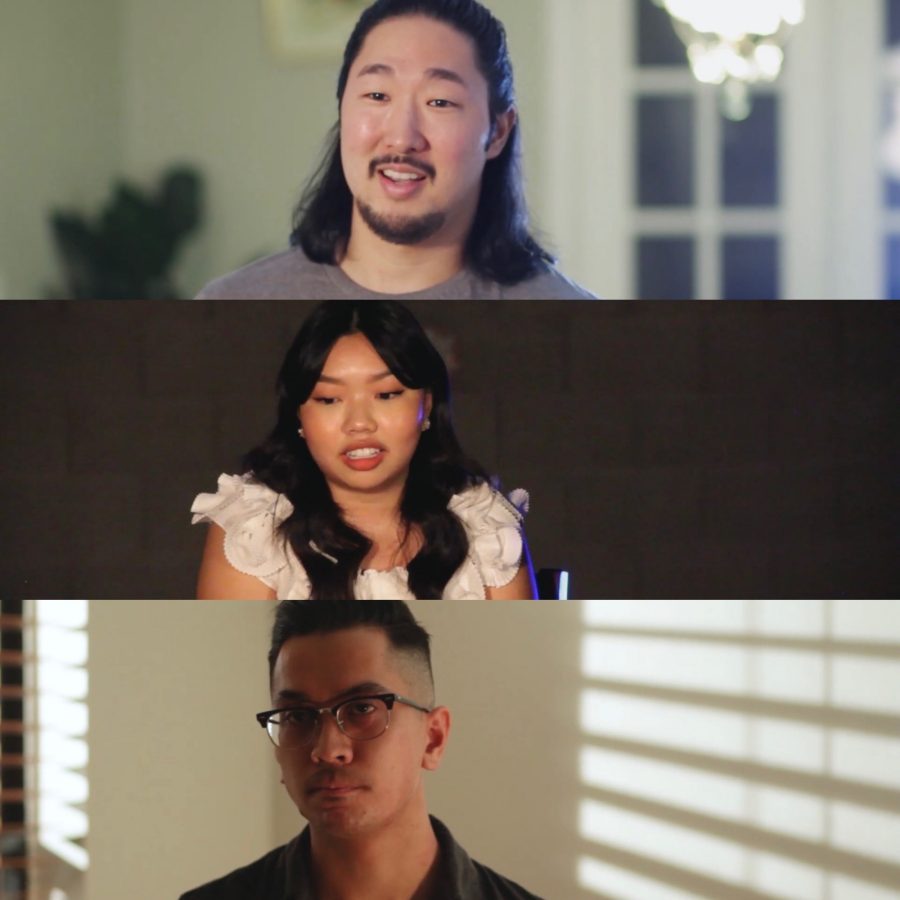“Asian and American.” For student filmmaker, Andy Nguyen Zhao, the “and” between identifiers acknowledges the cultural tightrope walked by Asian-Americans. Especially during adolescence, people of color experience a push toward Americanization that causes an obscuring of the self and disconnect from one’s heritage. Zhao explores this phenomenon in his latest documentary.
Zhao’s film “Asian and American” is featured in What’s Up, Docs?, an annual student film showcase hosted by Tucson’s own The Loft Cinema. This year’s lineup features 15 short documentaries made by UA film and television students. When the opportunity arose for one of his films to occupy the big screen, the FTV junior decided to pursue a topic that he has known since childhood.
“When you’re one of the only Asian kids in your community, things like ‘your food is stinky’ and ‘why do you look like that’ are just the tip of the iceberg,” Zhao explained. Growing up in Sierra Vista, a particularly white part of Arizona, Zhao recalled moments in his childhood that catalyzed his cultural drift. “For a while, I didn’t even want to be Asian anymore. I tried to act differently, look differently, totally dissing my Asian side.”

Zhao described those early feelings as a sort of unexplainable embarrassment. “Back then I was really ashamed of who I was,” he recalled, “but now it’s as if I don’t even know that much about my culture. I felt really bad about [that disconnect] for a long time. Now I know that it’s something that a lot of Asian-Americans go through. It was important for me to explore the reasons why.”
The documentary profiles three young Asian-American individuals that have experienced a similar separation from their roots. Shoon Shojima, Sandy Trieu, and Matthew Potwardowski share their stories of growing up Asian in America. The profiles include their struggles with masculinity, identity, and conformity and the ways in which they have begun to reconnect and remain in touch with their culture.
The young documentarian made note of how he was also inspired by issues of representation in the media. “One reason why I wanted to make this doc was because of the lack of Asian-American diversity stories, both in the [UA]’s film program, but also in the entire film industry. Typically, Asians are usually depicted as nerdy, weak, speak broken English, are hypersexualized, and other extremely xenophobic and racist stereotypes. I wanted to offer the school a story that was both necessary and new for them.”
Zhao went on to explain that his goal was to “invite everyone in to see a different view of Asian-Americans, what we go through, and that we’re a lot different than how we’re portrayed on screen.”
RELATED: ART IS ACTIVISM: Documenting history with local artist Robbie Lee Harris
There is a certain catharsis that a filmmaker feels after completing a personal project. As much as the creator wanted to focus on his audience and what they would learn from his work, he expressed his own positive feelings that came with the creative process. “The doc even further affirmed for me that this [experience] is way more common than I thought, much more so than I had originally imagined,” said Zhao. “This shared experience — growing up the same way, having that time period of disconnect, then an almost urgent pull to reconnect when we’re older — is nearly normal.”
The idea of said loss being fairly commonplace for Asian-Americans is both comforting and unsettling. However, all BIPOC folk can relate to the messages shared in Zhao’s film. The piece offers a sense of recognition and community to those who feel as if they have drifted away from their own.
“Asian and American” will be available through The Loft Cinema website at zero cost from Feb. 4-17.
Follow Selena Kuikahi on Twitter
Selena Kuikahi (she/her) is a senior studying both film and television and law.









